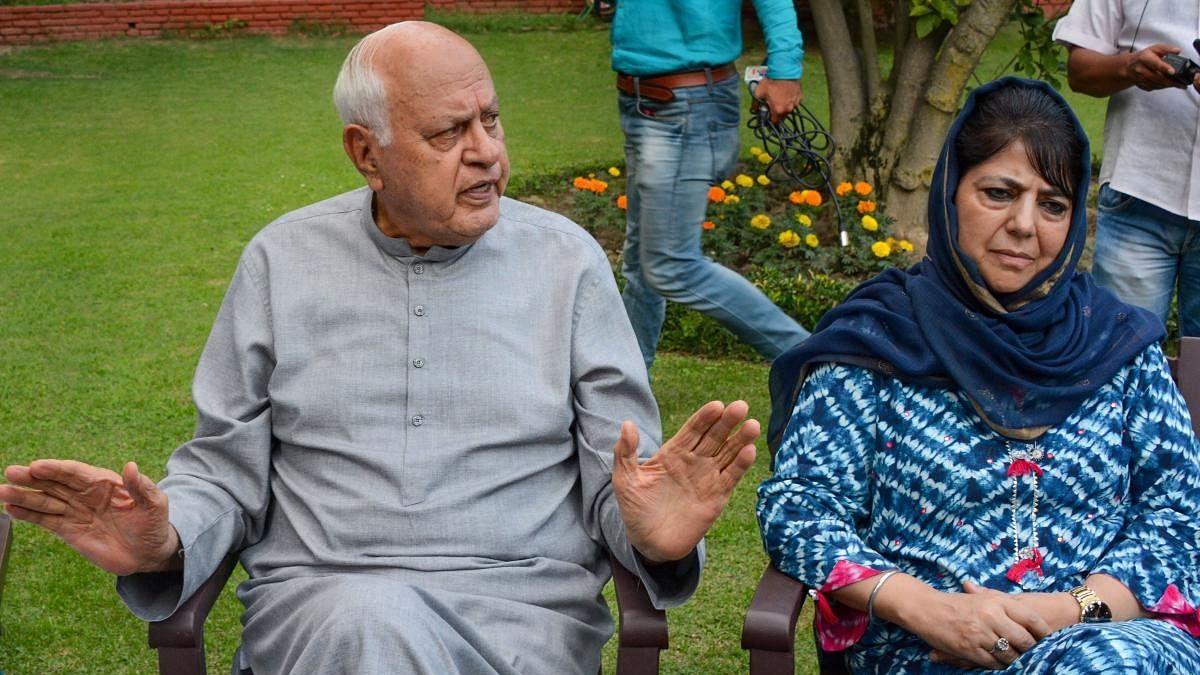
National Conference (NC) president Farooq Abdullah and PDP president Mehbooba Mufti.
Credit: PTI File Photo
Srinagar, DHNS: With Assembly elections in Jammu and Kashmir being held for the first time after the abrogation of Article 370, two main regional parties – National Conference (NC) and People's Democratic Party (PDP) – have made the restoration of erstwhile state’s special status a central theme in their poll manifestos.
They claim that if voted to power in the upcoming Assembly elections it will work towards restoring the erstwhile state’s political and constitutional right “snatched” by the Centre in August 2019.
Article 370 granted J&K significant autonomy, allowing it to have its own constitution and considerable self-governance. However, in August 2019, the government of India abrogated Article 370, effectively ending J&K's special status and reorganizing it into two Union Territories (UTs)—Jammu and Kashmir, and Ladakh.
This move was followed by significant political, legal, and administrative changes. Legal experts say restoring Article 370 would require not just political will but also adherence to legal and constitutional procedures.
“The abrogation of Article 370 involved a Presidential order and legislation passed by both houses of Parliament. Reinstating it would likely require a similar process, including approval from both houses of Parliament and possibly a Presidential order,” Adv Hafizullah Mir, who practices at J&K High Court, told DH.
He said an elected assembly in J&K, under the current constitutional framework, does not have the authority to unilaterally reverse or reinstate such a fundamental change made by the central government.
While the NC and PDP’s promises resonate with many in Kashmir, who seek a return to the pre-2019 status, the reality remains that the central government’s stance and legal complexities pose significant barriers.
The Congress party with whom the NC has entered into a pre-poll alliance has remained ambivalent over the question of restoration of Article 370. On January 29, 2023, after unfurling the tricolour in Srinagar after he wrapped up his cross-country Bharat Jodo Yatra, Congress leader Rahul Gandhi was non-committal on the question of restoration of Article 370.
This has put the NC in a tight spot as even its alliance partner is non-committal on Article 370. “While the restoration of Article 370 may reflect a deep-seated aspiration among many in J&K, the reality is different. Even if Kashmir-based parties form an alliance, yet it won’t be possible,” a senior NC leader said.
He acknowledged that as of now, the restoration of Article 370 remains a complex and uncertain proposition. “Kashmir-centric parties have to go before the voters with such promises, otherwise they will face an existential crisis,” he added.